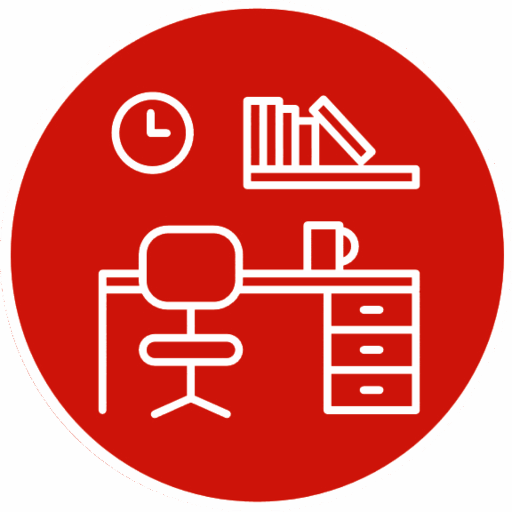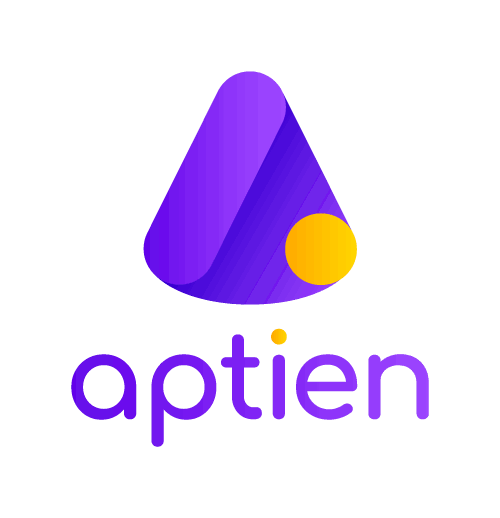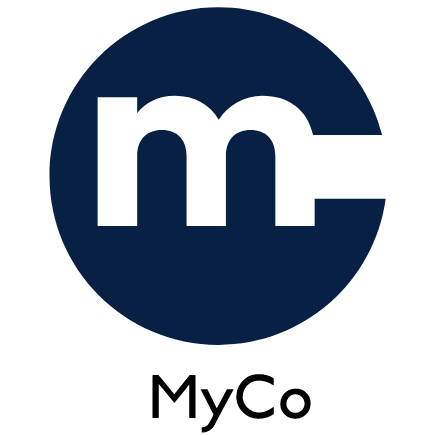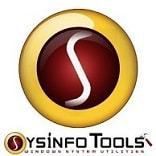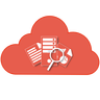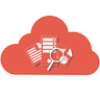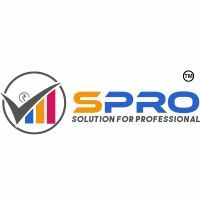Yes, most office management software packages are intended to be available from numerous devices and platforms. Users can access and update information from their desktop, laptop, tablet, or smartphone, independent of operating system. Cloud-based solutions sync data in real time, ensuring that all team members always have the most up-to-date information. This accessibility enables teams to collaborate and remain productive regardless of where they are working.
List of 20 Best Office Management Software
Dibsido is solution for workplace reservation and office organization. Its user-friendly interface simplifies the process of booking desks, parking spaces, and cars, all while effectively coordinating carpooling arrangements. With Dibsido, say goodby...Read More Dibsido
CA Office Pro is a office management solution for chartered accountants. Revolutionize your daily operations and gain valuable insights into your firm with this advanced software. From client management to organizing financial data, CA Office Pro str...Read More CA Office Pro
OVID My Office - a attendance management solution that utilizes employees mobile devices to track attendance using Dynamic QR codes and real-time location tracking. Our dependable and user-friendly software is designed to simplify the attendance proc...Read More OVID My Office
EasyCloudBooks solution for practice management in the cloud. This powerful software offers unmatched speed and affordability, allowing you to streamline daily tasks and dedicate more time to innovation. With its automation of routine processes, Easy...Read More EasyCloudBooks
LEAP Legal is a cloud-based practice management software tailored to meet the needs of law firms. Our comprehensive platform offers a range of essential features, including matter organization, legal form automation, email management, time tracking,...Read More LEAP Legal
Aptien solution for efficiently managing your office, employees, equipment, and assets. Ideal for small and medium-sized businesses, Aptien provides a wide array of features such as reminders, task management, meeting minutes, intranet, employee onbo...Read More Aptien
Anow is office management solution built specifically for appraisers. Utilizing advanced analytics, Anow offers a comprehensive overview of your business to help you make informed decisions. Keep track of key metrics such as revenue, customer base, a...Read More Anow
Smartguard is a network security and bandwidth management solution. With its user-friendly interface, Smartguard offers top-of-the-line features such as Firewall, Virus Scanning, Anti-Spam, and advanced traffic control based on IP addresses, ports, a...Read More Smartguard
OfficeAmp solution for streamlined employee request management. Our internal help desk app simplifies office operations by integrating with popular instant messaging platforms like Slack, Microsoft Teams, and Google Hangouts chat. Boost productivity...Read More OfficeAmp
MyCo - a SaaS solution that revolutionizes organizational efficiency and drives company growth. This intuitive platform streamlines management and increases employee engagement, making it an essential tool for any business. Leave behind complicated t...Read More MyCo
TaxAdda PMS is a practice management software designed specifically for CA and tax professionals. Its intuitive interface makes practice organization and management a breeze. Stay on top of your tasks with time tracking and seamless SMS and WhatsApp...Read More TaxAdda PMS
Aghreni Mobille Tracker – solution to streamline mobile connectivity and billing processes in corporate settings. With the increasing practice of providing employees with company mobile connections, accurately tracking business calls versus pe...Read More Aghreni Mobille Tracker
SysInfo Excel Recovery Tool solution for recovering data from damaged Excel files. This powerful tool guarantees complete retrieval of all your lost or corrupted data, without compromising its integrity, and saves it in a new file. Say goodbye to Exc...Read More SysInfo Excel Recovery Tool
Pingboard solution to enhance your companys employee satisfaction and address disengagement concerns. Our feature-rich platform includes onboarding, peer recognition, and organizational charts to foster a positive work culture and boost productivity...Read More Pingboard
Skedda is a scheduling solution that simplifies your entire booking process. With its easy-to-use system, you can customize and automate your schedule management, freeing up your time for more important tasks. Say goodbye to administrative headaches...Read More Skedda
Vyapin Office 365 Reports – solution for Office 365 analytics, audit, compliance, and security! Say goodbye to manual PowerShell tasks and hello to comprehensive, automated reports. Streamline your office management with confidence, as Vyapin...Read More Vyapin Office 365 Reports
A Office 365 Audit Reports is the perfect solution for comprehensive usage analysis of yA Office 365 exchange online. Simplify yA O365 security and compliance management with A automated reports. Try it out for free for 15 days and experience the adv...Read More Office 365 Audit Reports
PHONEslips is a office management software designed to streamline your daily tasks. From messaging and scheduling to contact management and document organization, this convenient system handles all your business needs with ease. Boost your office pro...Read More PHONESlips
Dose for Excel is a spreadsheet software equipped with add-in exclusively for Microsoft Excel. Simplify your tasks and increase productivity with this complete tool seamlessly integrated with the spreadsheet editor. Enhance your overall Excel experie...Read More Dose for Excel Add-In
SPRO-ERP is a software designed for professionals. With its cutting-edge capabilities such as client handling, appointment management, project tracking, document handling, and accounting, it streamlines processes and enhances overall productivity. Ex...Read More SPRO-ERP
Learn More About Office Management Software
- What Is Office Management Software?
- What Are The Recent Trends In Office Management Software?
- Benefits Of Using Office Management Software
- Important Factors To Consider While Purchasing Office Management Software?
- What Are The Key Features To Look For In Office Management Software?
- Why Do Businesses Need Office Management Software?
- How Much Time Is Required To Implement Office Management Software?
- What Is The Level Of Customization Available In Office Management Software?
- Which Industries Can Benefit The Most From Office Management Software?
- Conclusion
What Is Office Management Software?
Office Management Software is a comprehensive solution that streamlines and automates an office's administrative chores and processes, resulting in enhanced efficiency, productivity, and organization. This type of software provides a variety of capabilities, including task management, document management, scheduling, team collaboration, and reporting, making it an indispensable tool for any business or organization.
One of the primary advantages of Office Management Software is its capacity to centralize and streamline diverse operations, hence removing the need for manual chores and lowering the likelihood of errors. This not only saves time, but also lowers the likelihood of miscommunication and delays. This program also provides for smooth interaction with other tools and systems, resulting in a comprehensive and unified platform for handling all office-related duties.
Another important feature of Office Management Software is its customizability. Businesses of all sizes can customize the program to meet their individual requirements, budgets, and objectives. This guarantees that the software adjusts to the specific needs of each business, maximizing advantages and return on investment. When choosing Office Management Software, one of the most important factors to consider is its ease of use.
The program should have a simple and straightforward interface that employees of all levels may use without requiring substantial training. This also enables for a smooth and rapid integration of the program into the office process. Furthermore, the security and data privacy aspects of Office Management Software are crucial for protecting sensitive information and avoiding cyber threats. To protect your data, look for software that includes strong security features such as encryption and role-based access.
What Are The Recent Trends In Office Management Software?
Technology has advanced dramatically in recent years, having a huge impact on how firms work, particularly in terms of office management. With the increasing demand for efficiency and productivity, office management software has emerged as a crucial tool for managing any organization's everyday operations. To make informed purchasing decisions in an ever-changing sector, buyers must stay up to date on the latest developments in office management software.
We'll look at some of the latest trends in office management software and how they might help organizations.
1. Cloud-Based Solutions: One of the most recent developments in office management software is the transition to cloud-based solutions. Cloud technology enables remote access to software, making it easier for teams to communicate and work from anywhere. It also eliminates the need for costly hardware and IT maintenance, making it an affordable alternative for enterprises of any size.
2. Integration With Other Applications: As businesses increasingly employ a variety of software and tools to manage their operations, integration capabilities have become an important feature of office management software. Many software companies now provide connectivity with popular applications like project management tools, CRM systems, and accounting software. This link enables smooth data sharing and eliminates tedious effort for the office management staff.
3. Automation: Automation is another major development in office management software. Automation functions like as data entry, scheduling, and job management are now being integrated by software providers using artificial intelligence (AI) and machine learning. This not only saves time, but also improves accuracy and minimizes errors.
4. Mobile Accessibility: With the development of remote work and the use of mobile devices for business, it is critical for office management software to provide mobile accessibility. Employees may now access the software using their smartphones or tablets, making it easier to remain up to date and manage projects while on the go.
5. Data Security: Data security is becoming a major concern for businesses, and office management software providers are addressing it seriously. To protect sensitive information, advanced security mechanisms such as encryption, data backup, and multi-factor authentication are increasingly being used.
6. Customization: Each organization has distinct demands and preferences, and office management software companies are now providing additional customization choices to meet these special needs. This enables enterprises to adjust the software to their own processes and workflows, resulting in greater efficiency and effectiveness.
Benefits Of Using Office Management Software
Office management software is a strong tool for streamlining and increasing the efficiency of your office operations. This software has a wide range of capabilities, such as task management, document sharing, scheduling, and communication tools, all on one simple platform.
In this buyer's guide, we'll go over the multiple benefits of adopting office management software and why it's a good investment for your organization.
1. Improved Organization And Time Management: One of the most important benefits of adopting office management software is improved organization. This software helps you to save all of your documents, projects, and tasks in a single location, making it easy to access information and interact with teammates. Customizable reminders and scheduling capabilities allow you to prioritize activities and manage your time more effectively, ensuring that all deadlines are reached.
2. Improved Communication And Collaboration: Office management software enables better communication and collaboration among team members. With capabilities like live chat, video conferencing, and real-time document editing, teams can stay connected and collaborate effectively. This reduces confusion and fosters a more productive and unified work atmosphere.
3. Improved Productivity And Efficiency: By automating tedious chores and optimizing processes, office management software can boost productivity and efficiency. Employees may focus on more vital activities with features like automated billing, task assignment, and time tracking, allowing them to finish work faster and with fewer errors.
4. Cost-Effective Solution: Investing in office management software is an affordable option for organizations of all sizes. This program eliminates the need for various tools and subscriptions, lowering costs while delivering all key functionality in a single platform. Furthermore, increased production and efficiency can boost a company's bottom line.
5. Improved Data Management And Security: Office management software has comprehensive data management and security tools to safeguard critical information. It lets you to specify permissions and access levels for specific documents, as well as restrict access to secret data. This level of control ensures that your company's data is secure and available only to authorized users.
6. Easy Scalability: As your company grows, so will your demands. Office management software allows you to simply add more users, services, and storage as your organization grows. Because of its scalability, it is an ideal long-term solution for firms that plan to grow.
7. Accessible Anytime, Anywhere: With office management software, you may access your work and crucial papers from anywhere and at any time. This versatility is especially useful for remote teams, allowing them to collaborate seamlessly from a variety of places and devices.
Important Factors To Consider While Purchasing Office Management Software?
When choosing office management software, purchasers should examine a number of crucial considerations. This software can have a significant impact on a company's efficiency and productivity, so carefully consider all possibilities before making a selection.
Here are the major elements to consider while selecting office management software:
1. Needs And Goals: Before beginning your search for office management software, you must first establish your company's specific needs and goals. This will assist in narrowing down the options to software that is tailored to the specific needs of the organization.
2. Functions And Functionality: Office management software offers a wide range of functions and capabilities, from basic document management to comprehensive project management. Consider which features are critical for your organization and select software that can meet those requirements.
3. Usability: The program should be simple to use and comprehend, especially by non-technical workers. A complicated and difficult-to-use platform can frustrate and impede productivity. Look for platforms that have a simple user interface and easy navigation.
4. Compatibility And Integration: The office management software must be compatible with the company's existing systems and applications. Consider whether the software is compatible with other tools or applications used in the organization.
5. Price And Budget: Office management software can range from free to pricey, based on its features and functionality. Set a budget and stick to it while considering other choices. Consider the long-term ROI rather than just the initial expense.
6. Customer Assistance: Think about how much customer help the software provider offers. Look for a provider who provides dependable and accessible support across multiple channels to help with any technical issues or inquiries.
7. Security And Data Protection: Because office management software deals with important company data, security and data protection should be a high concern. Check for security measures like data encryption and regular backups to protect the safety of your data.
8. Scalability: As a firm grows, its needs and requirements evolve. Choose office management software that can support the company's future expansion and is simply scalable. By taking these critical elements into account, purchasers can make an informed decision about which office management software is most suited to their company's specific needs. Remember to conduct extensive study and analyze several choices before making a final decision.
What Are The Key Features To Look For In Office Management Software?
When it comes to selecting the best office management software, there are numerous crucial factors to consider. These capabilities are critical for streamlining and optimizing your office procedures, resulting in higher productivity and better management.
The following are the main features to look for in office management software:
1. Task And Project Management: Office management software should allow you to create, allocate, and track tasks and projects. This feature enables more effective task distribution and improved team collaboration.
2. Arranging And Calendar Management: Look for software that includes a centralized calendar system for easily arranging meetings, appointments, and deadlines. This feature can also be integrated with email and other communication platforms to facilitate task management.
3. Document Management: A decent office management software should have a powerful document management system that facilitates file storage, categorization, and retrieval. This function protects the security and accessibility of critical corporate information.
4. Communication And Collaboration: Effective communication is vital in any office setting. Look for software that supports a variety of communication channels, including chat, video conferencing, and real-time collaboration tools. This tool promotes effective and timely communication among team members.
5. Time And Expense Monitoring: Time and expense monitoring services help firms measure productivity and manage their budgets. Look for software that allows you to customize your time and cost monitoring for more precise reporting and analysis.
6. Integration Capabilities: Look for software that can interact with other business tools like accounting, customer relationship management, and project management software. This enables a smooth workflow and streamlined operations.
7. Mobile Access: In today's fast-paced work world, accessing information on the go is critical. Look for software that is mobile-compatible so that team members can keep connected and informed even when they are not in the office.
8. Reporting And Analytics: The ability to create bespoke reports and gain relevant insights is critical for making sound company decisions. Look for software that includes extensive reporting and analytics capabilities to improve management and planning.
Why Do Businesses Need Office Management Software?
Office management software is a valuable resource for organizations of all sizes and sectors. As the modern workplace becomes more digital, firms must streamline administrative activities and processes. Office management software provides a comprehensive solution to the issues that businesses encounter while managing their day-to-day operations.
First and foremost, office management software automates and simplifies a variety of administrative duties, including employee scheduling, appointment management, and document organization. This saves firms valuable time and resources that could be better spent on more important activities. Furthermore, office management software provides a consolidated platform for all business processes, facilitating greater coordination and communication among various teams and departments.
This not only increases efficiency, but also improves teamwork and fosters a more unified work environment. Furthermore, as the amount of data collected and consumed in the workplace grows, office management software offers powerful data management and analysis tools. This enables firms to track and evaluate key performance metrics, make data-driven choices, and uncover opportunities for development.
Furthermore, office management software includes strong security capabilities to safeguard important business data against cyber threats. With data breaches becoming more common in today's digital age, having a dependable and secure system in place is critical for organizations to protect their data. Finally, with the development of remote work and the requirement for workplace flexibility, office management software provides cloud-based solutions that are accessible from any location with an internet connection. This enables employees to work from any location, leading to increased productivity and work-life balance.
How Much Time Is Required To Implement Office Management Software?
The time it takes to implement office management software varies according to the size of your firm, the complexity of your procedures, and the specific features and customization necessary. On average, it can take between a few weeks and many months. It is critical to set up enough time and resources for a smooth and successful implementation. The first stage in implementation is to gather requirements and identify the major pain spots in your office management process.
This phase might last from a few days to a week, depending on the number of stakeholders involved and the clarity of your organization's requirements. Next, the software is customized and configured to meet your individual needs. This procedure can take several weeks or longer, depending on the complexity of your operations and the level of customization necessary.
Once the software has been configured and personalized, the testing phase will begin. This is an important stage to guarantee that the software functions well and meets all of your company requirements. Testing time can range from a few weeks to a month, depending on the number of test cases and any complications that develop. After a successful test, it's important to train and onboard your personnel. The time necessary for this stage might range from a few days to a week, depending on your team's size and expertise with the software. The final stage is the actual implementation and launch phase.
This is when the software is formally released for use in your organization. The time required for this phase varies, but it is advised that you have at least a few weeks to ensure that your staff adopts the program smoothly and successfully. Implementing office management software might take anything from a few weeks to many months, depending on a variety of circumstances. To guarantee a smooth and seamless transition for your organization, provide adequate time and resources to each stage of the implementation process.
What Is The Level Of Customization Available In Office Management Software?
Most office management software provides extensive customization options, allowing customers to personalize the platform to their own business requirements. This implies that firms can tailor the software to their specific workflow processes, preferences, and organizational structure, rather than having to shoehorn their operations within a rigid framework. The extent of customisation in office management software varies according to the platform and plan.
However, some popular customization possibilities include the ability to add custom fields and forms, configure dashboards, and develop workflows that mirror the business's specific operations. Custom fields and forms enable users to add special data fields to records, such as client or product information, to meet their specific business requirements. This can help businesses better organize and report on their activities.
Personalizing dashboards allows users to change the layout and widgets on their home screen, giving them rapid access to the most critical information and tasks. This can save time and increase productivity by streamlining the user experience and making relevant information always visible. Another level of flexibility offered by office management software is the ability to create workflows.
This enables firms to map out their processes and automate repeated procedures, leading to increased productivity and lower human error. Furthermore, many office management software platforms have interfaces and add-ons that provide even more customization options. Businesses can interface their software with other tools or services they employ, such as accounting software or project management systems.
Which Industries Can Benefit The Most From Office Management Software?
Office management software is a useful tool for streamlining administrative processes and increasing overall corporate productivity. However, certain industries may profit more from this software than others.
In this buyer's guide, we'll go over which sectors can profit the most from Office Management Software, and why.
1. Small And Medium-Sized Firms: Managing many activities can be difficult for small and medium-sized firms due to limited resources and a smaller crew. Office Management Software can aid these firms by automating regular processes like invoicing, scheduling, and data management, allowing employees to focus on more important responsibilities.
2. Healthcare: The healthcare industry deals with a large number of sensitive patient information on a daily basis. Office Management Software provides secure document management and compliance tracking, enabling healthcare workers to optimize administrative operations while being HIPAA compliant.
3. Education: Schools and universities must manage a tremendous amount of data, including student records, faculty information, and financial data. Office Management Software can assist educational institutions in efficiently storing and organizing these documents, making data more accessible and lowering the risk of errors or information loss.
4. Legal: Law firms and legal divisions manage a significant quantity of documents and deadlines. Office Management Software can improve document management and automate document creation, saving time and lowering the possibility of human error. It also includes functions like legal calendaring and client administration, making it an indispensable tool in the legal sector.
5. Real Estate: Real estate agents and property managers may have several properties, clients, and transactions to handle. Office Management Software may streamline various operations, from document management to appointment scheduling, making it easier to manage properties and clients while also improving customer service.
6. Non-Profit Organizations: Non-profit organizations must manage multiple administrative chores while operating with limited money. Office Management Software can help these groups keep organized, manage donor information, and track donations more effectively, allowing them to focus on their mission and goals.
Conclusion
To summarize, it is evident that investing in office management software may significantly benefit your company by reducing operations, boosting organization, and increasing productivity. However, before making a purchase, you should analyze your company's specific demands and goals, as well as the features and capabilities provided by various software solutions.
When comparing software solutions, carefully consider pricing, integration with existing systems, usability, and customer support. Reading reviews and testimonials from other firms can also help you understand the software's usefulness and reliability. Finally, the best office management software will differ depending on your company's size, industry, and special requirements.
Take the time to thoroughly investigate and evaluate choices so that you can make an informed selection. With the appropriate software, you can successfully manage your office chores and enhance overall productivity, resulting in more success and growth for your company.
Office Management Software FAQ's
Can Office Management Software Be Accessed Across Multiple Devices And Platforms?
Is Office Management Software Future-Proof And Adaptable To Emerging Technologies Like AI, Blockchain Or IoT?
Office management software is intended to simplify and automate different administrative chores, making it an indispensable tool in every modern company. Given the rapid growth of technology, it is fair to worry if it is future-proof and adaptable to upcoming technologies like as AI, blockchain, and IoT. The answer is yes, because most office management software is continually updated with new technologies and features, ensuring that it remains relevant and efficient for years to come.
Is There A Free Trial Offered To Assess Office Management Software Before Committing?
Yes, many office management software vendors provide a free trial period so that potential clients can evaluate the product before committing. This allows consumers and organizations to evaluate the software's capabilities, usability, and general efficiency before investing in it. It is recommended that you use these free trials to confirm that the program matches your specific needs and requirements before purchasing.
Does Office Management Software Offer Data Security Features And Meet Regulatory Compliance Standards?
Yes, most current office management software includes data security safeguards and meets regulatory criteria such as GDPR and HIPAA. These features include encrypted data storage, user access controls, and scheduled data backups.
This guarantees that sensitive information is secure and in compliance with regulations. Furthermore, regular updates and audits are performed to guarantee that the software is secure and compliant. Rest confident that your data is safe and secure using office management software.
Can Office Management Software Integrate Seamlessly With Existing Tools And Platforms?
Yes, most office management software is designed to work easily with other products and platforms. These systems are frequently designed with interoperability in mind, allowing for seamless interaction with popular software such as Microsoft Office, Google Drive, and Dropbox.
This connection simplifies operations, reduces human data entry, and ensures that all information is centralized and available in one location. Furthermore, many office management software suppliers give customized integration options to meet your company's specific requirements.



